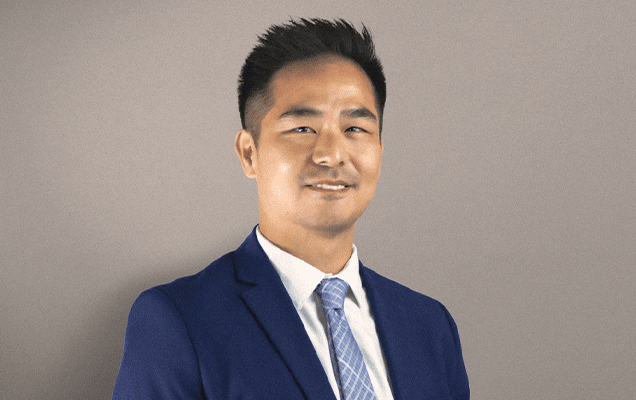Herniated Disc Surgery Recovery: What to Expect
Suffering from a herniated disc can be a painful and debilitating experience. For many, surgery becomes the chosen path to alleviate pain and other symptoms that affect daily life. Surgery is usually recommended when conservative treatments, such as physical therapy, medications, and rest, have not provided relief.
In this article we will explore the recovery process following surgery for a herniated disc. From understanding the type of surgery to managing expectations during the healing journey, we’ll guide you through the steps to a healthier, pain-free life.
Herniated Disc Surgery Overview
Type of Surgery:
Surgery for a herniated disc varies depending on the severity and location of the herniation. Your doctor may recommend minimally invasive spine surgery, such as a microdiscectomy. The goal of surgery is to relieve pressure on the spinal nerves, which are often compressed because of the herniated disc.
Minimally Invasive Surgery:
Advances in medical technology have made minimally invasive spine surgery an option for many patients. This approach involves small incisions, shorter recovery times, and less tissue disruption compared to traditional surgery.
Relieving Pressure:
The primary objective of herniated disc surgery is to relieve pressure on the affected spinal nerves, otherwise known as decompression. By removing the herniated disc material, the surgeon aims to alleviate pain and other symptoms caused by nerve compression.
It's time to get back to doing what you love.
Herniated Disc Surgery Recovery
Immediate Post-Surgery:
In the days following surgery, you may experience some discomfort at the incision site and surgical area. Your medical team will provide pain relief measures to help manage this and closely monitor your progress.
Recovery Time:
Recovery time varies from person to person and depends on the type of surgery performed. However, most individuals can expect to return to light activities within a few weeks.
Physical Therapy:
Physical therapy can play a crucial role in the recovery process. A physical therapist will work with you to rebuild strength, flexibility, and endurance, helping you regain functionality.
Maintain Good Posture:
Maintaining good posture during recovery is essential. Proper alignment reduces stress in the healing area and supports a more successful outcome.
Return to Work:
When you can return to work depends on your occupation and the type of surgery you had. After surgery, some individuals can return to a desk job within a few weeks after surgery. However, individuals with physically demanding jobs may require additional time.
What to Expect After Surgery
Pain Relief:
While surgery for a herniated disc is highly effective in relieving pain, it’s essential to understand that some discomfort during the recovery process is normal. Your medical team will provide pain relief options to help manage this.
Nerve Root Recovery:
The goal of decompression is to provide the best environment for the nerve to recover. Therefore, nerve root recovery may take some time. Leg pain and other symptoms may improve gradually over the weeks and months following surgery, which is not uncommon.
Maintaining a Healthy Lifestyle:
During your herniated disc surgery recovery, it’s essential to focus on maintaining a healthy lifestyle. This includes eating a balanced diet, staying hydrated, and avoiding habits that could impede your healing, such as smoking. Smoking can hinder the body’s ability to heal and increase the risk of complications.
Follow Post-Operative Instructions:
Your surgeon will provide you with specific post-operative instructions that you should follow diligently. This may include restrictions on lifting heavy objects, avoiding certain activities, and taking prescribed medications as directed.
Return to Activity:
As you recover from surgery it’s crucial to follow a gradual return to activity. While physical therapy is essential, it’s equally important not to overexert yourself or rush the healing process. Gradually increasing your activity level in consultation with your healthcare provider will help ensure a smoother recovery.
Monitoring Your Progress:
Regular follow-up appointments are essential to monitor your progress and address any concerns or complications promptly. Your medical team will use diagnostic tools and imaging to assess the healing process and the status of your spine.
Long-Term Recovery:
Herniated disc surgery recovery is just one phase of your journey toward long-term well-being. Once you have fully recovered, you should maintain a healthy lifestyle, including regular exercise and proper spine care, to prevent future issues.
In conclusion, herniated disc surgery recovery is a multifaceted process that requires dedication, patience, and adherence to medical guidance.
By understanding the type of surgery, managing expectations, and following post-operative instructions, you can pave the way for a smoother recovery journey.
Remember that you are not alone on this journey, and with the right support, you can look forward to a healthier future.
If you or a loved one has been diagnosed with a herniated disc, there’s no need to suffer in pain! Contact our office today to schedule a consultation with one of our expert Neurosurgeons. We can help get you back to doing what you love and living a life without pain.

About Dr. Jonathan Yun
Dr. Jonathan Yun is an accomplished neurosurgeon in North Jersey and is a proud member of Neurosurgeons of New Jersey, practicing out of their Ridgewood office and Montclair office. Dr. Yun focuses on disorders of the brain and spine, specifically degenerative conditions brain and spine conditions and brain tumors. His clinical research was dedicated to the treatment of malignant and benign brain tumors. He specializes his surgical expertise on minimally invasive decompressive procedures to spinal fusions and deformity correction. He excels in the surgical techniques related to stereotactic surgery and radiosurgery of the brain and associated structures. Dr. Yun is currently accepting new patients.






